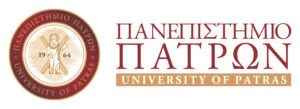Η Παιδαγωγική πλαισιώνει και υποστηρίζει την ερευνητική περιοχή της Διδακτικής των Θετικών Επιστημών, δηλ. την έρευνα για τη διδασκαλία και μάθηση των Φυσικών Επιστημών, των Μαθηματικών, της Πληροφορικής και των ΤΠΕ. Εστιάζοντας στις εκπαιδευτικές ανάγκες μαθητών και εκπαιδευτικών, η Παιδαγωγική ασχολείται με την ανάπτυξη, εφαρμογή και αξιολόγηση διδακτικών-μαθησιακών προσεγγίσεων κατάλληλων για τα επιμέρους γνωστικά αντικείμενα και συμβατών με τις εμπειρίες, τις γνώσεις και τις δυνατότητες των παιδιών. Επιπλέον, μελετά ζητήματα που σχετίζονται με την αρχική εκπαίδευση και κατάρτιση των εκπαιδευτικών για τη διδασκαλία των Θετικών Επιστημών.
Ενδεικτικές δημοσιεύσεις
-
Misirli, A., Komis, V. (2024). Mental Representations About Tangible Programming in Early Childhood Education. In: Baratgin, J., Jacquet, B., Yama, H. (eds) Human and Artificial Rationalities. HAR 2023. Lecture Notes in Computer Science, vol 14522. Springer, Cham. https://doi.org/10.1007/978-3-031-55245-8_24.
-
Avgitidou, S., Kampeza, M., Karadimitriou, K. & Sidiropoulou, C. (2024). Pre-service teachers’ beliefs about children’s participation and possibilities for their transformation during initial teacher education, Education Sciences, 14 (3), 236. https://doi.org/10.3390/educsci14030236
-
Filippidi, A., Karachristos, C., Lavidas, K., Komis, V., Karacapilidis, N. (2023). Leveraging Cognitive and Social Engagement in Blended Learning Through an AI-Augmented Pedagogical Framework. In: Kubincová, Z., Caruso, F., Kim, Te., Ivanova, M., Lancia, L., Pellegrino, M.A. (eds) Methodologies and Intelligent Systems for Technology Enhanced Learning, Workshops – 13th International Conference. MIS4TEL 2023. Lecture Notes in Networks and Systems, vol 769. Springer, Cham. https://doi.org/10.1007/978-3-031-42134-1_3.
-
Tzavara, A., Lavidas, K., Komis, V., Misirli, A., Karalis, T., & Papadakis, S. (2023). Using personal learning environments before, during and after the pandemic: The case of “e-me”. Education Sciences, 13(1), 87.
-
Misirli, A., Nikolos, D. & Komis, V. (2021). Investigating early childhood children’s mental representations about the programmable floor robot Bee-Bot. Mediterranean Journal of Education, 1(2), p. 223-231, ISSN: 2732-6489
-
Sissamperi, N., Koliopoulos, D. (2021). How students of primary school understand large scale energy systems: the case of thermal power plant. Journal of Technology and Science Education, 11(1), 129-145, Online ISSN: 2013-6374 – Print ISSN: 2014-5349, https://doi.org/10.3926/jotse.1137.
-
Πεντέρη, Ε., Χλαπάνα, Ε., Μέλλιου, Κ., Φιλιππίδη, Α., & Μαρινάτου, Θ. (2021). Πρόγραμμα Σπουδών Προσχολικής Εκπαίδευσης Νηπιαγωγείου. Στο πλαίσιο της Πράξης «Αναβάθμιση των Προγραμμάτων Σπουδών και Δημιουργία Εκπαιδευτικού Υλικού Πρωτοβάθμιας και Δευτεροβάθμιας Εκπαίδευσης» ” του ΙΕΠ με MIS 5035542.
-
Πεντέρη, Ε., Χλαπάνα, Ε., Μέλλιου, Κ., Φιλιππίδη, Α., & Μαρινάτου, Θ. (2021). Οδηγός νηπιαγωγού – Υποστηρικτικό υλικό. Πυξίδα: Θεωρητικό και μεθοδολογικό πλαίσιο-Διδακτικοί σχεδιασμοί. Ινστιτούτο Εκπαιδευτικής Πολιτικής.
-
Kampeza M., & Delserieys, A. (2020). Acknowledging drawing as a mediating system for young children’s ideas concerning change of state of matter. Review of Science, Mathematics and ICT Education, 14 (2), 105-124.
-
Misirli, A.& Komis, V. (2015). Robotics and programming concepts in early childhood education: A conceptual framework for designing educational scenarios. In: C. Karagiannidis, P. Politis, & I. Karasavvidis (Eds.), Research on e-learning and ICT in education technological, pedagogical and instructional perspectives. New York: Springer Science+Business Media. DOI: https://doi.org/10.1007/978-1-4614-6501-0_8
-
Sissamperi, N., Koliopoulos, D. (2015). A didactical approach of large- scale electricity generation systems at the elementary school level. Educational Journal of the University of Patras UNESCO Chair, 2, No 2, 14-24, ISSN: 2241- 9152.
-
Tzavara, A., & Komis, V. (2015). Design and implementation of educational scenarios with the integration of TDCK: A case study at a Department of Early Childhood Education. Technological pedagogical content knowledge: Exploring, developing, and assessing TPCK, 209-224.
